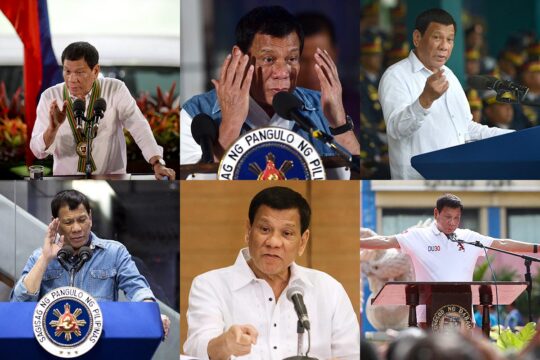France on Saturday arrested Felicien Kabuga, one of the last key fugitives wanted over 1994 Rwandan genocide, leaving him facing a likely trial at an international tribunal after a quarter of a century on the run.
Kabuga, once one of Rwanda's richest men, was living under a false identity in the Paris suburbs, the public prosecutor's office and police said in a joint statement.
Agents swooped on his home at dawn, finding an 84-year-old man "who has been sought by the judicial authorities for 25 years", the statement said.
Around 800,000 people -- Tutsis but also moderate Hutus -- were slaughtered over 100 days by ethnic Hutu extremists during the 1994 genocide.
Kabuga was arrested at his home in Asnieres-sur-Seine north of Paris and had been hiding with the complicity of his children.
The police statement described him as "one of the world's most wanted fugitives".
- Behind Interahamwe' -
Kabuga is accused of creating the notorious Interahamwe militia that carried out massacres in the 1994 genocide.
He also helped create the equally notorious Radio-Television Libre des Mille Collines that incited people to carry out murder in its broadcasts.
"Felicien Kabuga is known to have been the financier of the Rwandan genocide," it said, adding that he had spent time in Germany, Belgium, the Democratic Republic of Congo, Kenya and Switzerland.
The head of France's agency for fighting crimes against humanity, Eric Emeraux, told AFP that the chase had been renewed two months ago after new intelligence emerged.
Olivier Olsen, head of the association of homeowners in the building where he lived, described Kabuga as "someone very discreet... who murmured when you said hello."
He said Kabuga had lived there for 3-4 years.
Kabuga is accused of using his wealth and influence during the genocide to funnel money to militia groups as chairman of the Fonds de Defense Nationale (FDN) fund.
According to the State Department of the United States, which had offered a $5 million reward for information about him, Kabuga through the FDN "is alleged to have provided funds to the interim Rwandan government for the purposes of executing the 1994 genocide."
- 'Brought to account' -
Kabuga was indicted by the UN International Criminal Tribunal for Rwanda in 1997 on seven counts, including genocide.
The Rwanda tribunal formally closed in 2015 and its duties have since been taken over by the Mechanism for International Criminal Tribunals (MICT), which also deals with cases left over from the International Criminal Tribunal for the former Yugoslavia.
"The arrest of Felicien Kabuga today is a reminder that those responsible for genocide can be brought to account, even 26 years after their crimes," said Serge Brammertz, chief prosecutor of the MICT in The Hague.
Kabuga should now rapidly appear before French prosecutors who should order him to be remanded in custody. Judicial authorities can then rule on sending him to The Hague to face justice.
Kabuga is expected to be tried at the mechanism's branch in Arusha in Tanzania, an official from the prosecutor's office told AFP.
His eventual transfer to UN custody was likely to take some time because of the COVID-19 pandemic, tribunal sources said.
- Two more still at large -
The son of peasants, Kabuga grew his business from selling cigarettes and second hand clothes at markets in his northern home region of Byumba.
He expanded by opening businesses in the capital Kigali and by 1993 was already part of the inner circle of then Rwandan president Juvenal Habyarimana, with his daughter marrying one of the president's sons.
It was the assassination of Habyarimana on April 6, 1994 that unleashed the genocide.
Along with former defence minister Augustin Bizimana and top-ranking military figure Protais Mpiranya -- both still at large -- Kabuga was one of the three most significant suspects still sought over the genocide, the French police statement said.
France has long been known as a hiding place for wanted genocide suspects and French investigators currently have dozens of cases underway.
But so far there have been only three convictions from two trials with another trial -- of a French-Rwandan former hotel driver accused of transporting Hutu militiamen -- due to begin in September.
The genocide has cast a long shadow over Franco-Rwandan relations.
Rwanda's President Paul Kagame, a Tutsi, accuses France of having supported the ethnic Hutu forces behind most of the slaughter and of helping some of the perpetrators to escape.
Last year, President Emmanuel Macron announced the creation of a commission of experts that will delve into the French state's archives in a bid to set the historical record straight.


